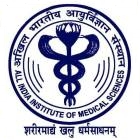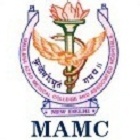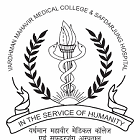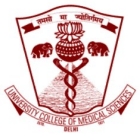Best Medical Colleges in Delhi NCR
Medical career is one of the oldest and most respected professions. It enables you to influence the lives of human beings to be truly unique and to achieve unparalleled work satisfaction. Medicine is a service and not only a profession, a field in which you have to place others first. The hard work and countless hours one needs to spend on completing a medical course can be difficult, but the effort is worth it in the end as it helps to save lives.
When it comes to medical colleges, Delhi features as a leading destination for aspiring medical students. The city/state is home to some of the leading medical colleges in the country and offers various undergraduate and postgraduate courses for students. There are numerous private and public medical colleges in Delhi which attract students from all over the country. Here we have listed the top medical colleges in Delhi along with all the essential information that you require for making a choice.
Medical Colleges In Delhi NCR: Specialisations Available
Undergraduate Courses
MBBS – Bachelor of Medicine and Bachelor of Surgery. The course duration is 5.5 years. Students with a biology background in HSC/10+2 and 50 percent marks in class 12th exams are eligible for this programme.
BDS (Bachelor of Dental Sciences) – The programme is for five years. Students with a biology background in HSC/10+2 and 50 percent marks in class 12th exams are eligible for this programme.
BHMS (Bachelor of Homeopathic Medicine & Surgery)- Students with a biology background in HSC/10+2 and 50 percent marks in class 12th exams are eligible for this programme. The programme is of five and a half years duration.
HMS (Diploma in Homeopathic Medicine & Surgery – The eligibility for the programme is biology background in HSC/10+2 and 50 percent marks in class 12th exams. The duration for the programme is four years.
BAMS (Bachelor of Ayurvedic Medicine and Surgery) – For a student to take this course, he/she must have science and biology as a background for HSC/10+2 and should have scored 50% or more marks in the exams.
BCS & AH (Bachelor of Veterinary Sciences & Animal Husbandry) – The requirement for this programme is HSC/10+2 with Biology. Candidates should also appear for the All India Pre-Veterinary Test Entry Exam. The programme is for five years.
B.Pharm (Bachelor of Pharmacy) - The requirement of this programme is HSC/10+2 with 50 percent marks and a background in science and biology. The programme is four years.
D. Pharm (Diploma of Pharmacy) – Students who have studied Science with biology in class 12th exams are eligible for this course. The duration of the programme is two years.
BPT (Bachelor of Physiotherapy) – The course is of four and a half years, and the eligibility for this course is HSC/10+2 with 45% or more marks in science subjects with Biology.
B.Sc. Nursing (Bachelor of Science in Nursing) - The course is for a duration of four years, and the eligibility for this course is HSC/10+2 with 45% or more marks in science subjects with Biology.
BNYS (Bachelor of Naturopathy and Yogic Sciences – The course is of five and a half years. The eligibility for this course is HSC/10+2 with 45% or more marks in science subjects with Biology.
Postgraduate Courses
MD Radiodiagnosis – Diagnosis monitoring and radiation therapy are part of the specialisation. Following trends in the previous year, radiodiagnosis has become the most common specialisation in MBBS. Medical tests, such as X-rays, MRIs, computer scans (CTS) and ultrasounds, must be interpreted. The division has found its niche in the advancement of health research.
MD General Medicine – The objective of this training is to enable students to respond effectively to the needs of the community. Patient care and intensive treatment are required for specialisation. Postgraduates in general medicine practise medicine in a variety of disciplines, such as the ambulatory, intensive care, hospital and emergency medicine.
MS General Surgery - Doctors specialising in general surgery have a broad understanding of medical conditions. Surgeons need to work together with their patients- To identify the medical problem, work and provide postoperative treatment for which surgery is required. Every day the field booms so many unknown and unexplored dimensions still exist, and physicians opt for this field with technological advances.
Anaesthetics - Anaesthetics professionals (anaesthetics) are important members of surgical teams and frequently assist in the production of chronic pain management therapies. Further specialisation, whether in the surgery or pain management, may mean focusing on the care of one specific form of event. The position brings together a comprehensive knowledge of applied physiology and pharmaceuticals with practical skills.
MD Dermatology - Students in the field of specialisation have been selected. According to statistics, about 1 in 20 Indians have skin conditions, while dermatologists, particularly in rural areas, are not readily available.
MS Obstetrics & Gynaecology - The aim of the specialisation, especially for women, is to provide optimal health care. The task of these doctors is to deal with diseases such as pregnancy, work, diagnosis, and treatment. The preference for female academics remains MS Obstetrics & Gynaecology.
Medical Colleges In Delhi NCR: Eligibility Criteria
Undergraduate course - For each undergraduate programme, the candidate must have completed 10+2 with the required percentage, and should be having a background in physics, chemistry and biology (zoology and botany). Also, the student must crack the entrance exam concerned here, i.e. NEET. The student must also have completed the age of 17 as of 31 December of the year of admission.
Postgraduate course - Medical students wishing to pursue a postgraduate programme in medicine are required to have an MBBS degree or a provisional MBBS certificate, which must be recognised by the Indian Medical Council Act, 1956. Medical graduates must register their MBBS qualification either provisionally or permanently. Registration shall be made by the MCI or the State Medical Council (SMC) or the Indian Medical Council (MCI). The practice is another important element of postgraduate eligibility. The student must have completed one year of internship before he or she opts for a postgraduate degree.
Certificate course – Numerous certificate programs are offered to a medical student. The certificate course in phlebotomy normally lasts from four to six months, as students learn to draw their blood from their veins for examination or treatment. Sonography Diagnostics are practitioners who have a one-to two-year diploma programme using computer software for the diagnostic function of generating human body photographs. All these programs require a 10+2 degree or equivalent and take relevant university courses such as biology, anatomy, and medical terminology. Graduates of such qualifications or degrees may obtain a qualification in their medical speciality through an educational organisation.
Diploma courses - Medical students take Diploma Courses to improve their skills and knowledge. The duration of the diploma is generally two years. The criteria for applying for a diploma is that the candidate must have an MBBS degree recognised by the Indian Medical Council (MCI) and a full year of internship under the guidelines issued by the Directorate-General for Health Services (DGHS).
Medical Colleges In Delhi NCR: Admission Process
Institute Level Entry Examination
Most colleges have undergraduate entrance exams. Some of them are the following
AIIMS (All India Institute of Medical Sciences), Delhi for both undergraduate and postgraduate programs.
JIPMER (Jawaharlal Institute of Postgraduate Medical Education & Research) for both undergraduate and postgraduate programs.
National Level Entry Examination – these tests are conducted at the national level.
NEET (National Eligibility cum Entrance Test)
NEET PG for post MBBS and NEET MDS for dental.
FET
Certificate courses – Certificate courses are offered based on a candidate having a 10+2 degree or equivalent and to take relevant university courses such as biology, anatomy, and medical terminology.
Diploma – Admissions to diploma programs are a little simple, as the candidate must have an MBBS degree recognised by the Indian Medical Council (MCI) along with a one-year internship under the guidelines issued by the Directorate General of Health Services (DGHS) and the candidate may apply for the same degree under the simple guidelines given by the respective college or university.
Medical Colleges In Delhi NCR: Specialisation Wise List
MD Radiodiagnosis
Name of the college | NIRF Rank | Careers360 rank | Acceptable Exam | Cut off | Fee | Duration | Seats |
| All India Institute of Medical Sciences New Delhi | 1 | 1 | - | Rs. 5.73 k | 3 years | 4 | |
| Vardhman Mahavir Medical College and Safdarjung Hospital, New Delhi | 16 | 18 | NEET NEET PG | - | Rs. 1.34 Lakhs | 3 years | 21 |
| Maulana Azad Medical College, New Delhi | 17 | 3 | NEET NEET PG | - | - | 3 years | 20 |
| University College of Medical Sciences, University of Delhi, Delhi | 19 | 5 | NEET NEET PG | - | Rs. 47 K | 3 years | 11 |
| - | 12 | NEET NEET PG NEET MDS | - | Rs. 46.80K | 3 years | 3 |
MD General Medicine
Name of the college | NIRF Rank | Careers360 rank | Acceptable Exam | Cut off | Fee | Duration | Seats |
| All India Institute of Medical Sciences New Delhi | 1 | 1 | AIIMS PG | - | Rs. 5.73 k | 3 years | 11 |
Vardhman Mahavir Medical College and Safdarjung Hospital, New Delhi | 16 | 18 | NEET NEET PG | - | Rs. 1.34 Lakhs | 3 years | 24 |
| Maulana Azad Medical College, New Delhi | 17 | 3 | NEET NEET PG | - | - | 3 years | 22 |
| University College of Medical Sciences, University of Delhi, Delhi | 19 | 5 | NEET NEET PG NEET MDS | - | Rs. 47 K | 3 years | 15 |
| - | 12 | NEET NEET PG NEET MDS | - | Rs. 46.80 K | 3 years | 12 |
MS General Surgery
Name of the college | NIRF Rank | Careers360 rank | Acceptable Exam | Cut off | Fee | Duration | Seats |
| All India Institute of Medical Sciences New Delhi | 1 | 1 | AIIMS PG | - | Rs. 5.73 k | 3 years | 11 |
Vardhman Mahavir Medical College and Safdarjung Hospital, New Delhi | 16 | 18 | NEET NEET PG | - | Rs. 1.34 Lakh | 3 years | 21 |
| Maulana Azad Medical College, New Delhi | 17 | 3 | NEET NEET PG | - | - | 3 years | 16 |
| University College of Medical Sciences, University of Delhi, Delhi | 19 | 5 | NEET NEET PG NEET MDS | - | Rs. 47 K | 3 years | 15 |
| - | 12 | NEET NEET PG NEET MDS | - | Rs. 46.80 K | 3 years | 11 |
MD Anesthetics
Name of the college | NIRF Rank | Careers360 rank | Acceptable Exam | Cut off | Fee | Duration | Seats |
| All India Institute of Medical Sciences New Delhi | 1 | 1 | AIIMS PG | - | Rs. 5.73 k | 3 years | 11 |
Vardhman Mahavir Medical College and Safdarjung Hospital, New Delhi | 16 | 18 | NEET NEET PG | - | Rs. 1.34 Lakhs | 3 years | 65 |
| Maulana Azad Medical College, New Delhi | 17 | 3 | NEET NEET PG | - | - | 3 years | 26 |
| University College of Medical Sciences, University of Delhi, Delhi | 19 | 5 | NEET NEET PG NEET MDS | - | Rs. 47 K | 3 years | 23 |
| - | 12 | NEET NEET PG NEET MDS | - | Rs. 46.80 K | 3 years | 10 |
MD Dermatology
Name of the college | NIRF Rank | Careers360 rank | Acceptable Exam | Cut off | Fee | Duration | Seats |
| All India Institute of Medical Sciences New Delhi | 1 | 1 | AIIMS PG | - | Rs. 5.73 k | 3 years | 5 |
Vardhman Mahavir Medical College and Safdarjung Hospital, New Delhi | 16 | 18 | NEET NEET PG | - | Rs. 1.34 Lakhs | 3 years | 5 |
| Maulana Azad Medical College, New Delhi | 17 | 3 | NEET NEET PG | - | - | 3 years | 2 |
| University College of Medical Sciences, University of Delhi, Delhi | 19 | 5 | NEET NEET PG NEET MDS | - | Rs. 47 K | 3 years | 4 |
MS Obstetrics & Gynecology
Name of the college | NIRF Rank | Careers360 rank | Acceptable Exam | Cut off | Fee | Duration | Seats |
| All India Institute of Medical Sciences New Delhi | 1 | 1 | AIIMS PG | - | Rs. 5.73 K | 3 years | 7 |
Vardhman Mahavir Medical College and Safdarjung Hospital, New Delhi | 16 | 18 | NEET NEET PG | - | Rs. 1.34 Lakhs | 3 years | 31 |
| Maulana Azad Medical College, New Delhi | 17 | 3 | NEET NEET PG | - | - | 3 years | 20 |
| University College of Medical Sciences, University of Delhi, Delhi | 19 | 5 | NEET NEET PG NEET MDS | - | Rs. 47 K | 3 years | 12 |
| - | 12 | NEET NEET PG NEET MDS | - | Rs. 46.80 K | 3 years | 5 |
Career Options Available After Course With Expected Salary
Specialisation | Career Options | Expected Salary |
MD Radiodiagnosis | Consultant Doctor Senior radiologist Chief radiologist | Rs. 1.5 – 2.5 lakhs per month |
MD General Medicine | Consultant Doctor | Rs. 1 – 1.5 lakhs per month |
MD Anaesthesiology | Anaesthesiologist Physician | Rs. 0.50 – 1.73 lakhs per month |
MS General Surgery | General Surgeon | Rs. 1.5 – 2.5 lakhs per month |
MD Dermatology | Dermatologist Consultant | Rs. 1 - 2 lakhs per month |
MS Obstetrics & Gynecology | Obstetrician Gynaecologist | Rs. 1.2 – 2.2 lakhs per month |
Top Employers In The Sector
There are numerous job opportunities available for medical graduates across a wide range of sectors. Some of the most prominent sectors where medical graduates can seek employment are: -
Government Hospitals and Departments
Private Hospitals and Nursing Homes
Diagnostic Laboratories
Pharmaceutical Manufacturing Companies
Medical Colleges
Private Clinics
Frequently Asked Questions (FAQS)
How many medical colleges are there in India?
There are 542 medical colleges, and 64 standalone PG institutions recognised by the Medical Council of India (MCI).
Which medical course is best in India?
There are a variety of courses available in India for a medical student which can be chosen from as per the interest of the student. Most students prefer to pursue their MBBS and then go for an MD or MS as per their preference for postgraduate education.
What is the salary of a doctor in India?
A doctor in India easily earns more than enough. A high salary of around 1 lakh to 30-30 lakhs is to be expected.
Is MBBS enough to be a doctor?
Yes. But most students prefer to pursue an MD or MS after their MBBS to improve their skills and employability.
What is the highest-paid category of doctors?
Physician and surgeon and the most paid type of doctors followed by the dentist, podiatrist, and pharmacist and so on.
Can anyone become a doctor without appearing or clearing NEET?
It is not possible to gain admission in MBBS course India without NEET. You need to qualify for NEET to pursue MBBS in India. For postgraduate courses, students can appear for medical entrance exams conducted by respective colleges.
What are the advantages of being a doctor in India?
This profession is a service not just for society, but also to you.
There may be no equivalent financial benefits for the profession for certain other professions, but there is intrinsic stability since it is not as likely to fail as some other professions.
Stability is what people want in their lives, along with happiness, and medicine is a better way of achieving that.
This is a vast and complex area where you never stop learning. MBBS is just the first step towards learning expertise and skills in the future in medicine, where the social good is pursued.
How much percentile is required in NEET to get MBBS?
For a candidate to get MBBS through NEET, he/she must have 50 percentile in NEET and 40 percentile in case of SC/ST/OBC category.
Which are the highest-paid doctors' job in India?
Some of the highest-paid profiles in medical professions are: -
Anaesthesiologists
Surgeons
Oral and maxillofacial surgeons
Obstetricians and gynaecologists
Orthodontists
Prosthodontists
Which is the best medical college in Delhi NCR?
Based on NIRF rankings, Careers360 ratings, and performance on other parameters, AIIMS Delhi is regarded as the best medical college in Delhi NCR.
AIIMS Delhi - All India Institute of Medical Sciences New Delhi
NIRF Ranking:
1Careers360
: 1- Exams: NEET
- Fees : ₹6.79 K
- D.M. (26 Courses)
Maulana Azad Medical College - Maulana Azad Medical College, New Delhi
NIRF Ranking:
26Careers360
: 7- Exams: NEET
- Fees : ₹11.00 K
- M.D. (14 Courses)
VMMC - Safdarjung Hospital - Vardhman Mahavir Medical College and Safdarjung Hospital, New Delhi
NIRF Ranking:
22Careers360
: 10- Exams: NEET
- Fees : ₹2.02 Lakhs
- M.D. (16 Courses)

UCMS Delhi - University College of Medical Sciences, University of Delhi, Delhi
NIRF Ranking:
38Careers360
: 12- Exams: NEET
- Fees : ₹1.21 Lakhs
- M.D. (12 Courses)
LHMC Delhi - Lady Hardinge Medical College for Women, New Delhi
NIRF Ranking:
32Careers360
: 15- Exams: NEET
- M.D. (14 Courses)
HIMSR New Delhi - Hamdard Institute of Medical Sciences and Research, New Delhi
Careers360
: 16- Exams: NEET
- Fees : ₹74.53 Lakhs
- M.D. (9 Courses)
ACMS Delhi - Army College of Medical Sciences, Delhi
Careers360
: 23- Exams: NEET
- Fees : ₹13.33 Lakhs
- M.D. (3 Courses)

NDMC Medical College Delhi - North Delhi Municipal Corporation Medical College, New Delhi
PGIMS Rohtak - Pt Bhagwat Dayal Sharma Post Graduate Institute of Medical Sciences, Rohtak
Careers360
: 62- Exams: NEET
- Fees : ₹1.70 Lakhs
- M.D. (16 Courses)
Dr Baba Saheb Ambedkar Medical College and Hospital, New Delhi
ILBS Delhi - Institute of Liver and Biliary Sciences, New Delhi
NIRF Ranking:
28- Exams: NEET SS
- Fees : ₹1.60 Lakhs
- D.M. (3 Courses)
- Ph.D (3 Courses)

Jamia Hamdard, New Delhi
Academy of Medical Coders India, Delhi
- Fees : ₹1.10 Lakhs
Acharya Narendra Dev College, New Delhi
- Exams: CUET UG
- Fees : ₹81.41 K

Adhunik Institute of Education and Research, Meerut
Ownership:
Meerut, Uttar Pradesh
Adhunik Institute of Education and Research, Meerut
Ownership:
Meerut, Uttar Pradesh
Aditya Institute of Technology, Delhi
- Exams: Delhi CET
- Fees : ₹78.90 K
AERP Institute of Technology and Management, Palwal
Ownership:
Palwal, Haryana
AERP Institute of Technology and Management, Palwal
Ownership:
Palwal, Haryana
Ahilya Bai College of Nursing, New Delhi

Ajay Sangaal Institute of Medical Science and Research, Shamli
Ownership:
Shamli, Uttar Pradesh
Ajay Sangaal Institute of Medical Science and Research, Shamli
Ownership:
Shamli, Uttar Pradesh
Al Falah School of Medical Sciences and Research Centre, Faridabad
Ownership:
Faridabad, Haryana
Al Falah School of Medical Sciences and Research Centre, Faridabad
Ownership:
Faridabad, Haryana
- Exams: NEET
- Fees : ₹74.50 Lakhs
- M.D. (10 Courses)
Allama Iqbal Unani Medical College, Muzaffarnagar
Ownership:
Muzaffarnagar, Uttar Pradesh
Allama Iqbal Unani Medical College, Muzaffarnagar
Ownership:
Muzaffarnagar, Uttar Pradesh
All India Institute of Ayurveda, New Delhi

Alwar Nursing College, Alwar
- Exams: RUHS BSc Nursing
Amar Jyoti Institute of Physiotherapy, Delhi
Ownership:
New Delhi, Delhi
Amar Jyoti Institute of Physiotherapy, Delhi
Ownership:
New Delhi, Delhi
Amogha Institute of Professional and Technical Education, Ghaziabad
Ownership:
Ghaziabad, Uttar Pradesh
Amogha Institute of Professional and Technical Education, Ghaziabad
Ownership:
Ghaziabad, Uttar Pradesh
Amrita College of Nursing, Faridabad
- Fees : ₹10.25 Lakhs

Amrita School of Medicine, Faridabad
Amrita Vishwa Vidyapeetham, Faridabad Campus
Ownership:
Faridabad, Haryana
Amrita Vishwa Vidyapeetham, Faridabad Campus
Ownership:
Faridabad, Haryana
- Exams: AEEL
- Fees : ₹4.72 Lakhs
- B.Sc. (14 Courses)
Arpan Institute for Mentally Handicapped Children, Rohtak
Ownership:
Rohtak, Haryana
Arpan Institute for Mentally Handicapped Children, Rohtak
Ownership:
Rohtak, Haryana

Ashtavakra Institute of Rehabilitation Sciences and Research, New Delhi
Ownership:
New Delhi, Delhi
Ashtavakra Institute of Rehabilitation Sciences and Research, New Delhi
Ownership:
New Delhi, Delhi
Atal Bihari Vajpayee Institute of Medical Sciences and Dr Ram Manohar Lohia Hospital, New Delhi
Ownership:
New Delhi, Delhi
Atal Bihari Vajpayee Institute of Medical Sciences and Dr Ram Manohar Lohia Hospital, New Delhi
Ownership:
New Delhi, Delhi
- Exams: NEET
- Fees : ₹1.86 Lakhs
- M.D. (10 Courses)
Ayurveda and Unani Tibbia College, Karol Bagh, Delhi
Baba Haridass College of Pharmacy and Technology, Delhi
Ownership:
New Delhi, Delhi
Baba Haridass College of Pharmacy and Technology, Delhi
Ownership:
New Delhi, Delhi

Baba Mastnath University, Rohtak
- Fees : ₹3.60 Lakhs
- M.P.T. (4 Courses)
Baba Saheb Ambedkar Technical Education Society, New Delhi
Ownership:
New Delhi, Delhi
Baba Saheb Ambedkar Technical Education Society, New Delhi
Ownership:
New Delhi, Delhi
- Fees : ₹1.42 Lakhs
- B.Sc. (1 Course)
Balaji College of Veterinary Science and Research Center, Bhiwani
Ownership:
Bhiwani, Haryana
Balaji College of Veterinary Science and Research Center, Bhiwani
Ownership:
Bhiwani, Haryana
- Fees : ₹2.80 Lakhs

Banarsidas Chandiwala Institute of Physiotherapy, New Delhi
BDM College of Ayurveda Science and Hospital, Chhuchhakwas, Jhajjar
Ownership:
Jhajjar, Haryana
BDM College of Ayurveda Science and Hospital, Chhuchhakwas, Jhajjar
Ownership:
Jhajjar, Haryana
BDM College of Nursing, Jhajjar
- Fees : ₹1.20 Lakhs
- Diploma (2 Courses)
Bhagwant Ayurvedic College and Bhagwant Hospital, Muzaffarnagar
Ownership:
Muzaffarnagar, Uttar Pradesh
Bhagwant Ayurvedic College and Bhagwant Hospital, Muzaffarnagar
Ownership:
Muzaffarnagar, Uttar Pradesh
Bharat Ayurved Medical College, Hospital and Research Centre, Muzaffarnagar
Ownership:
Muzaffarnagar, Uttar Pradesh
Bharat Ayurved Medical College, Hospital and Research Centre, Muzaffarnagar
Ownership:
Muzaffarnagar, Uttar Pradesh
Bhartiya Homoeopathic Medical College and Hospital, Bharatpur
Ownership:
Bharatpur, Rajasthan
Bhartiya Homoeopathic Medical College and Hospital, Bharatpur
Ownership:
Bharatpur, Rajasthan




